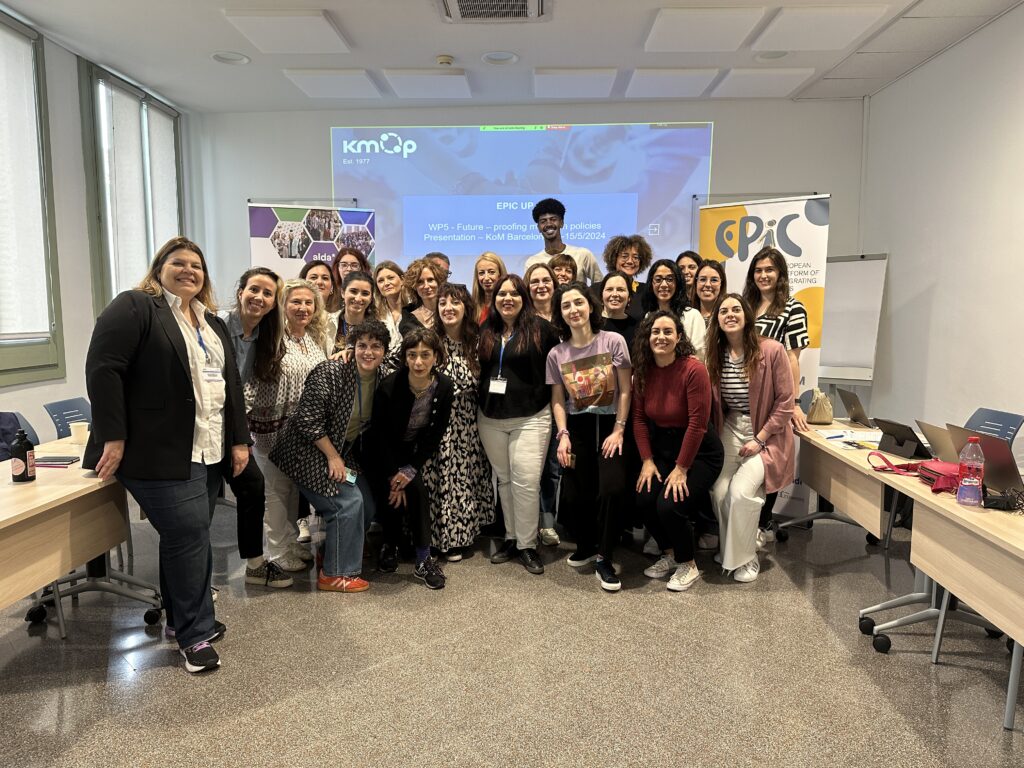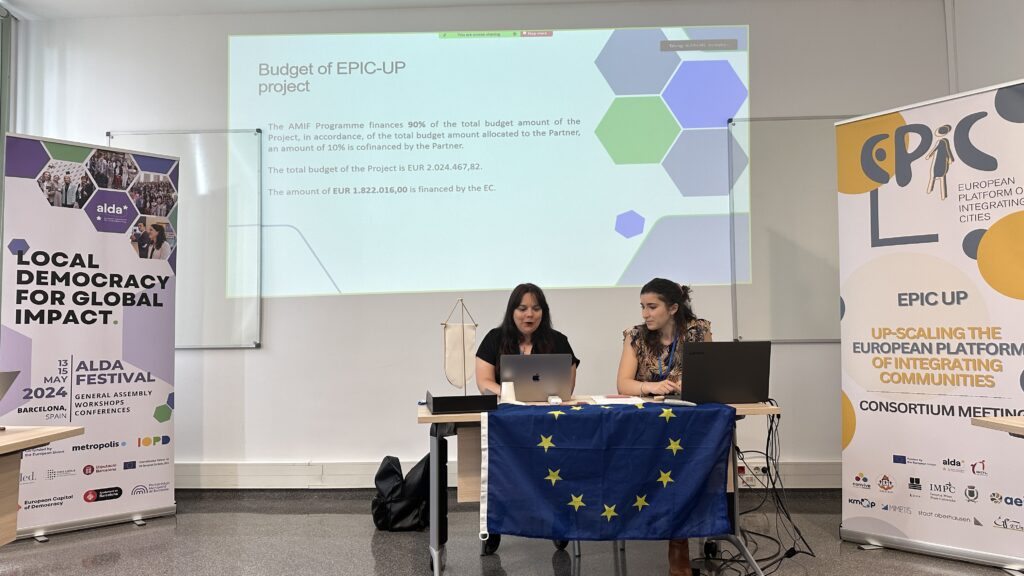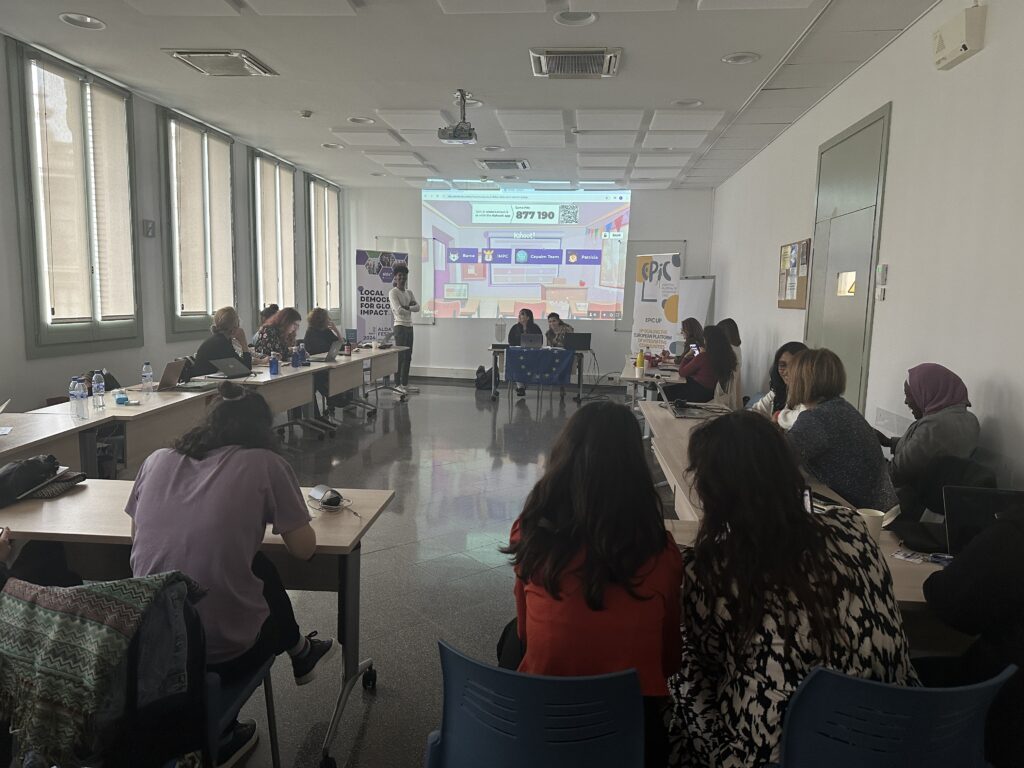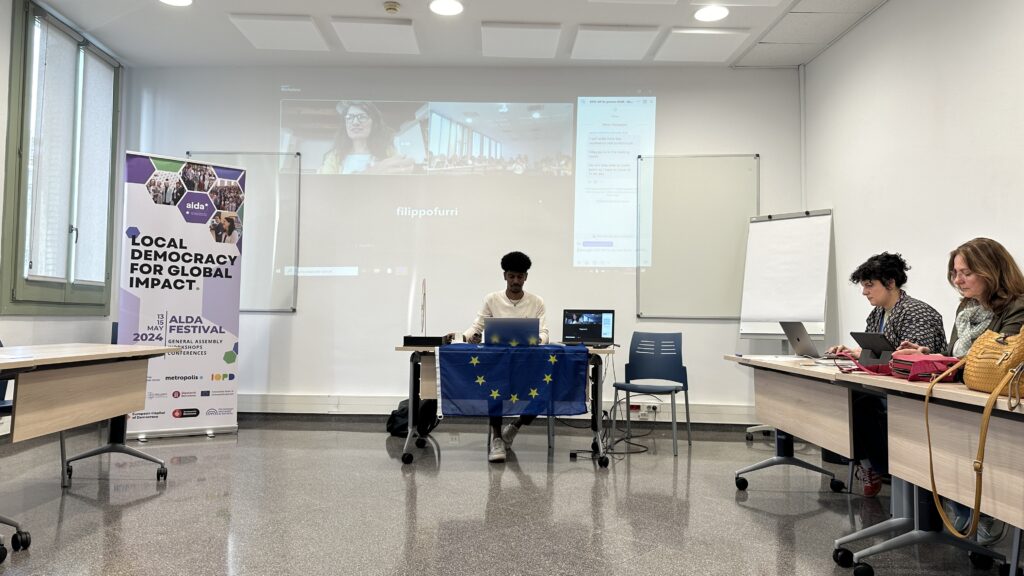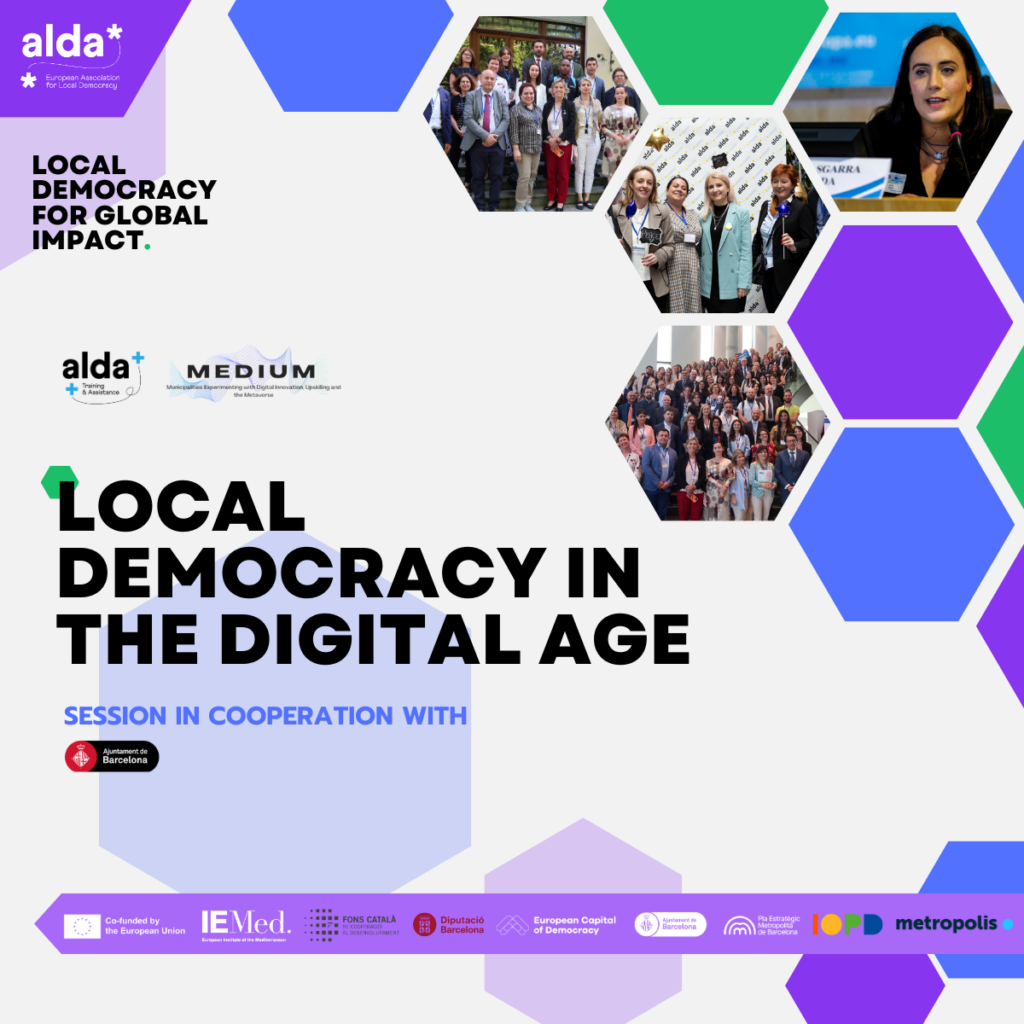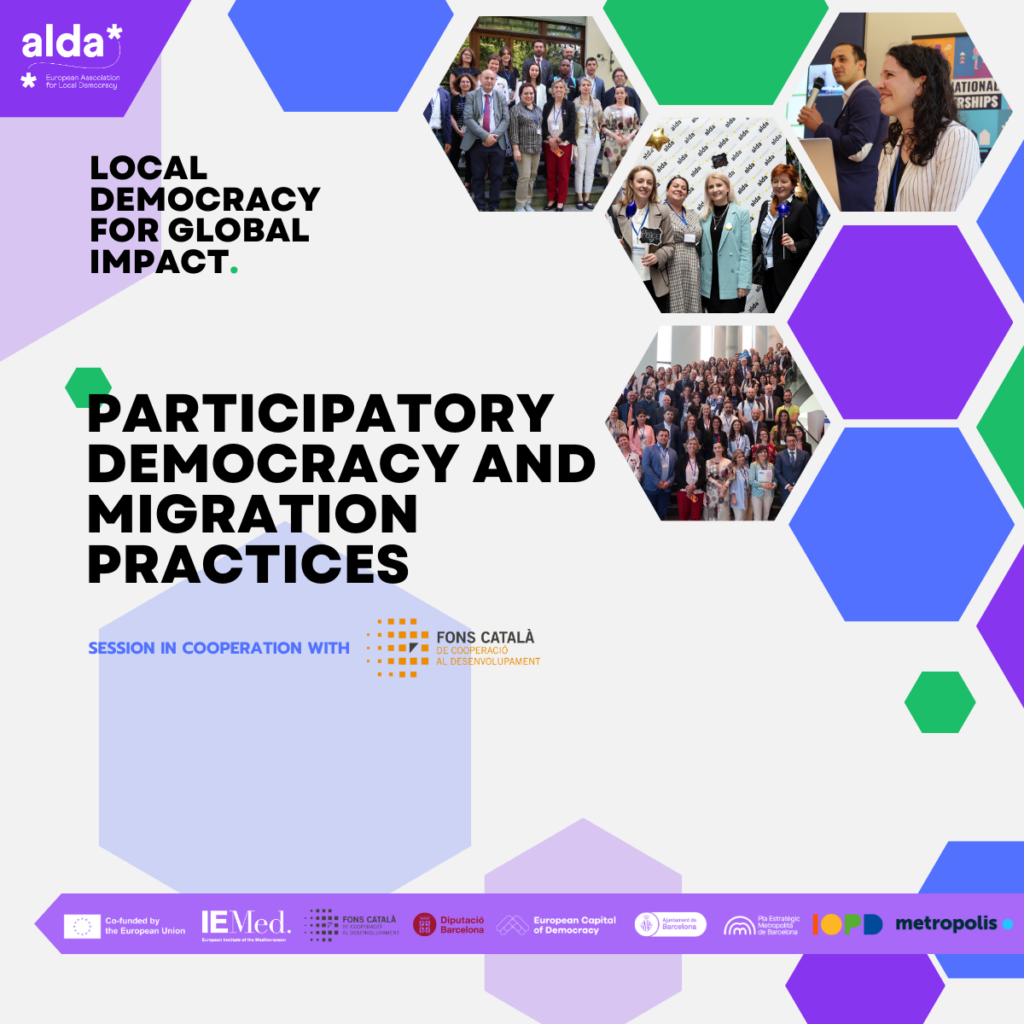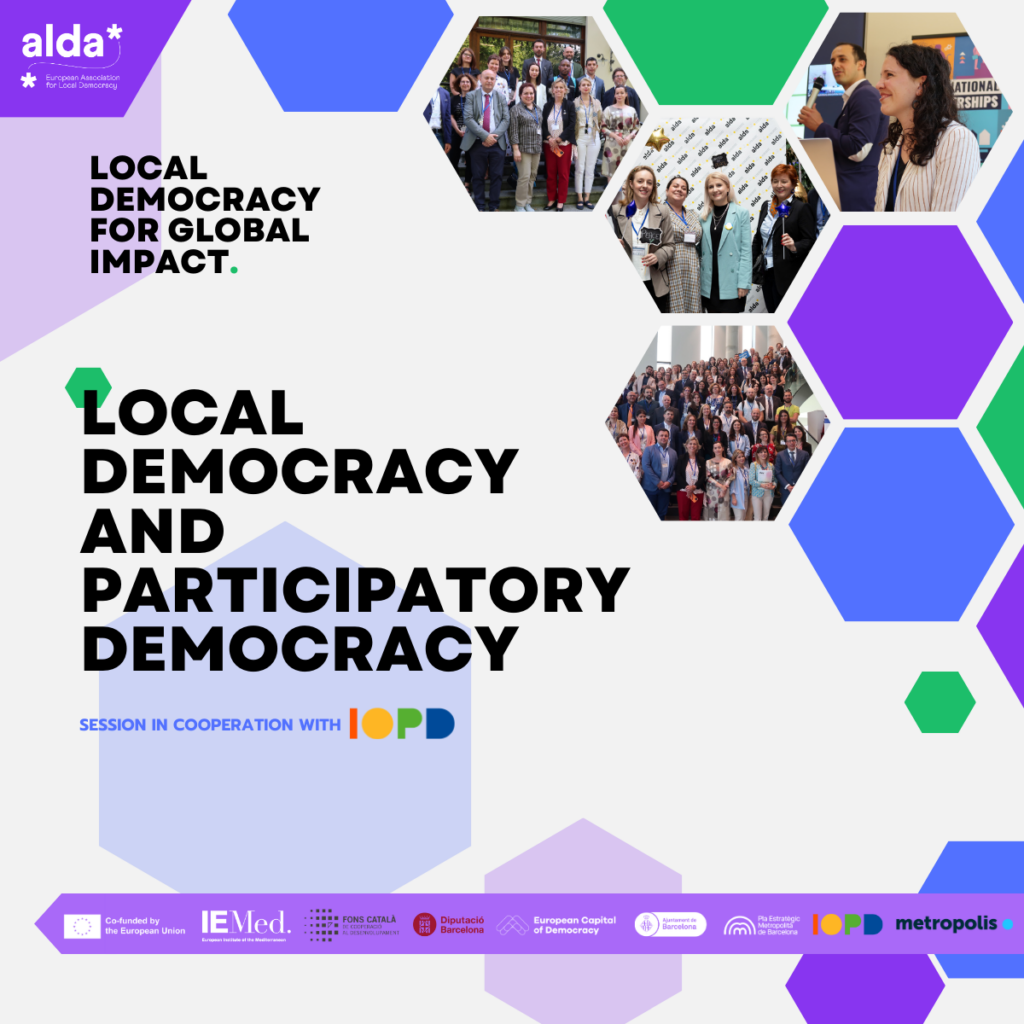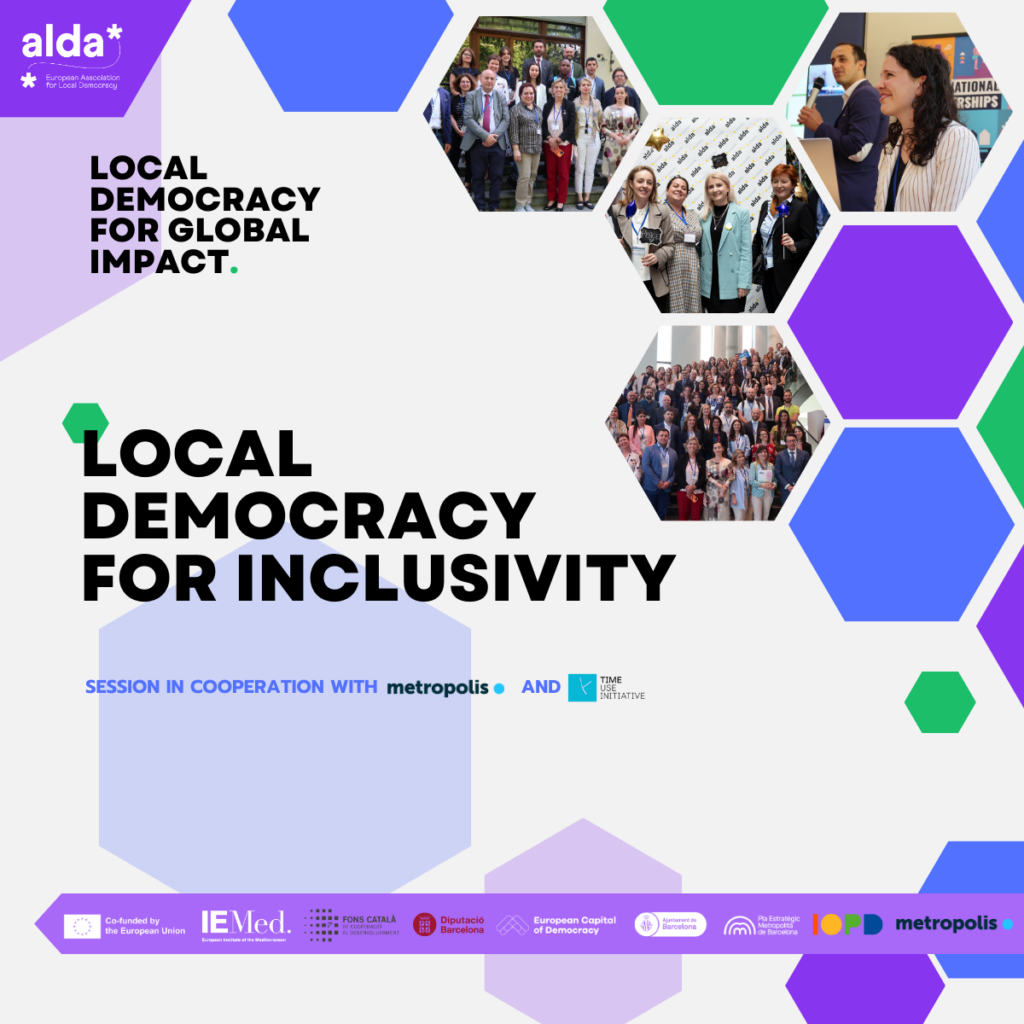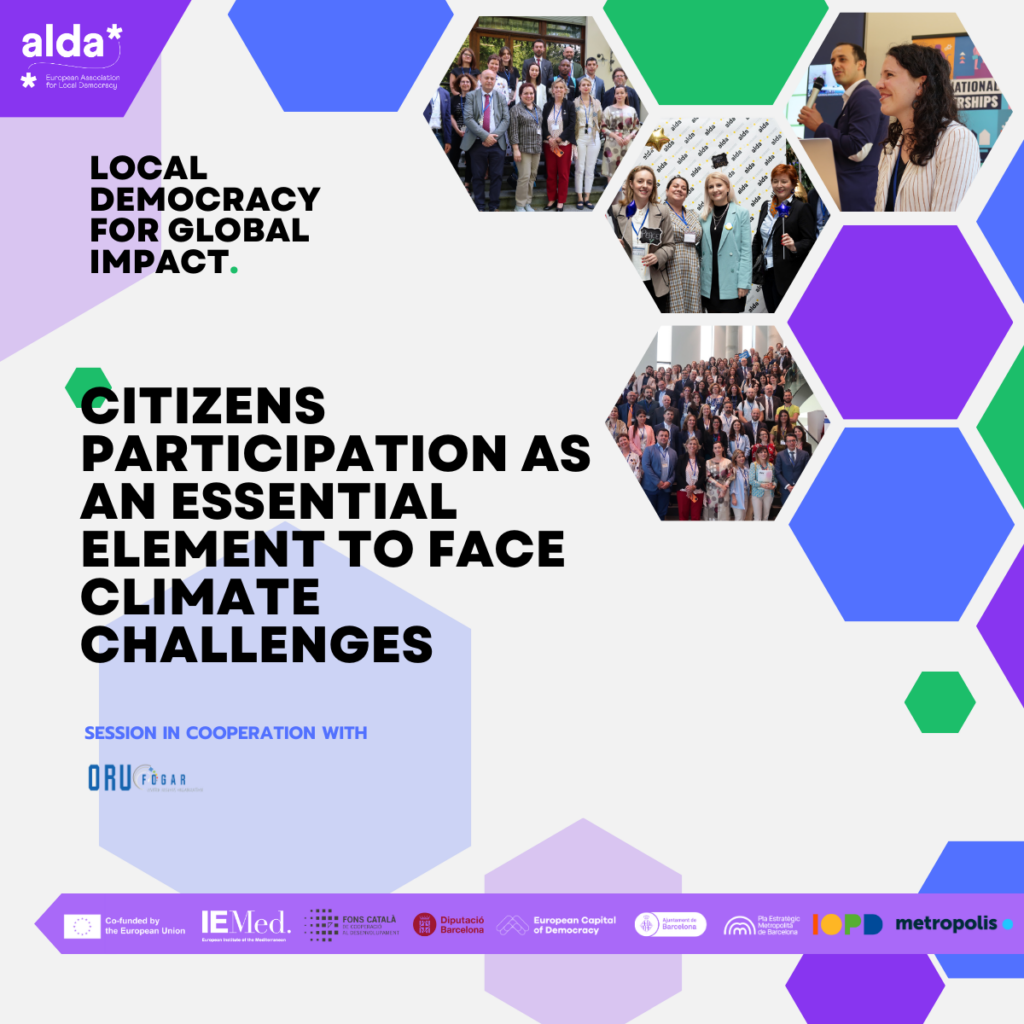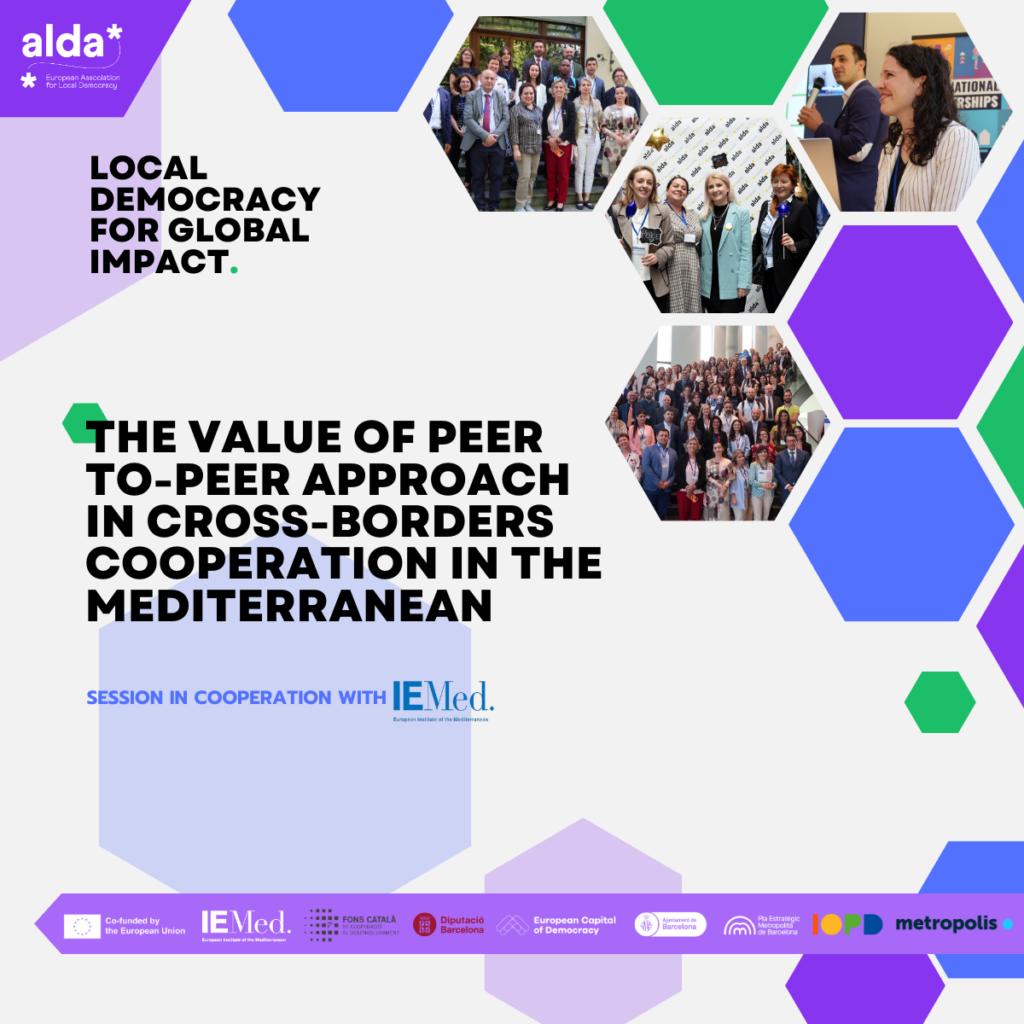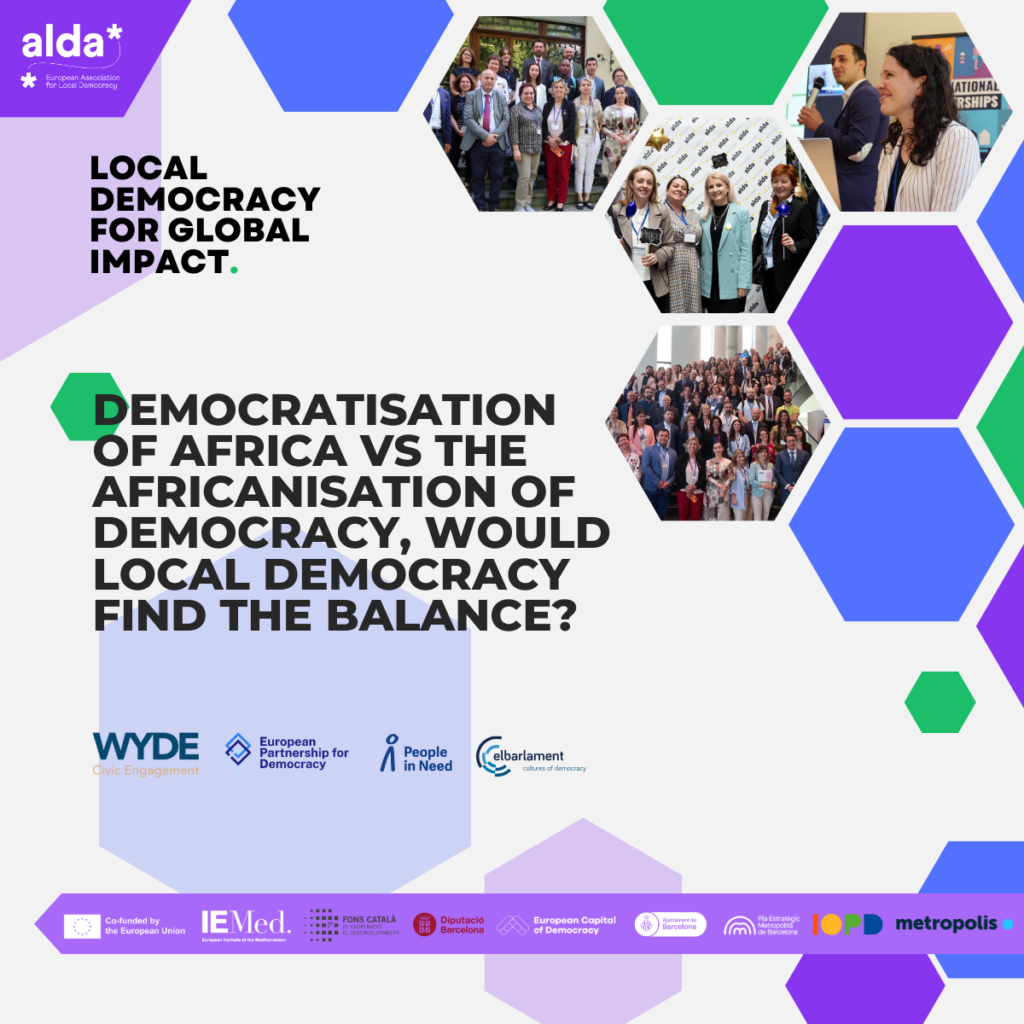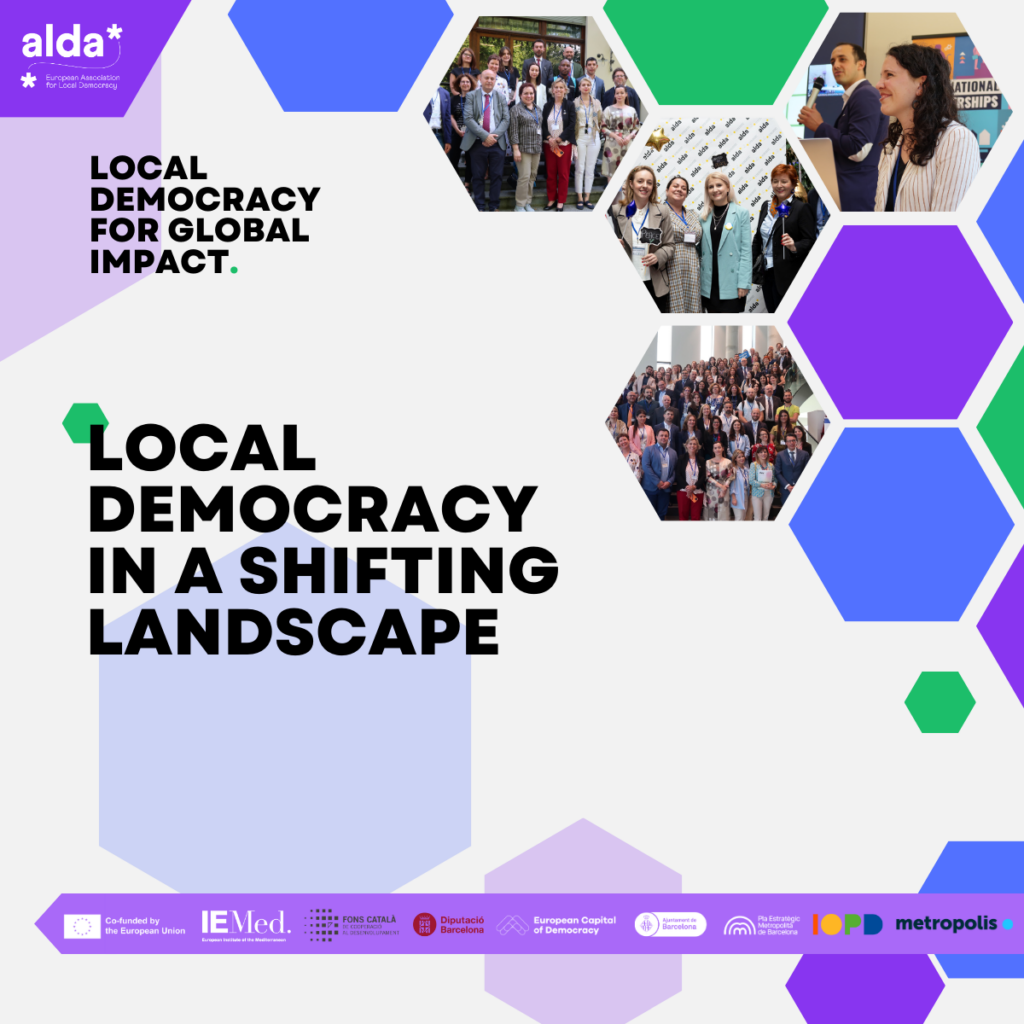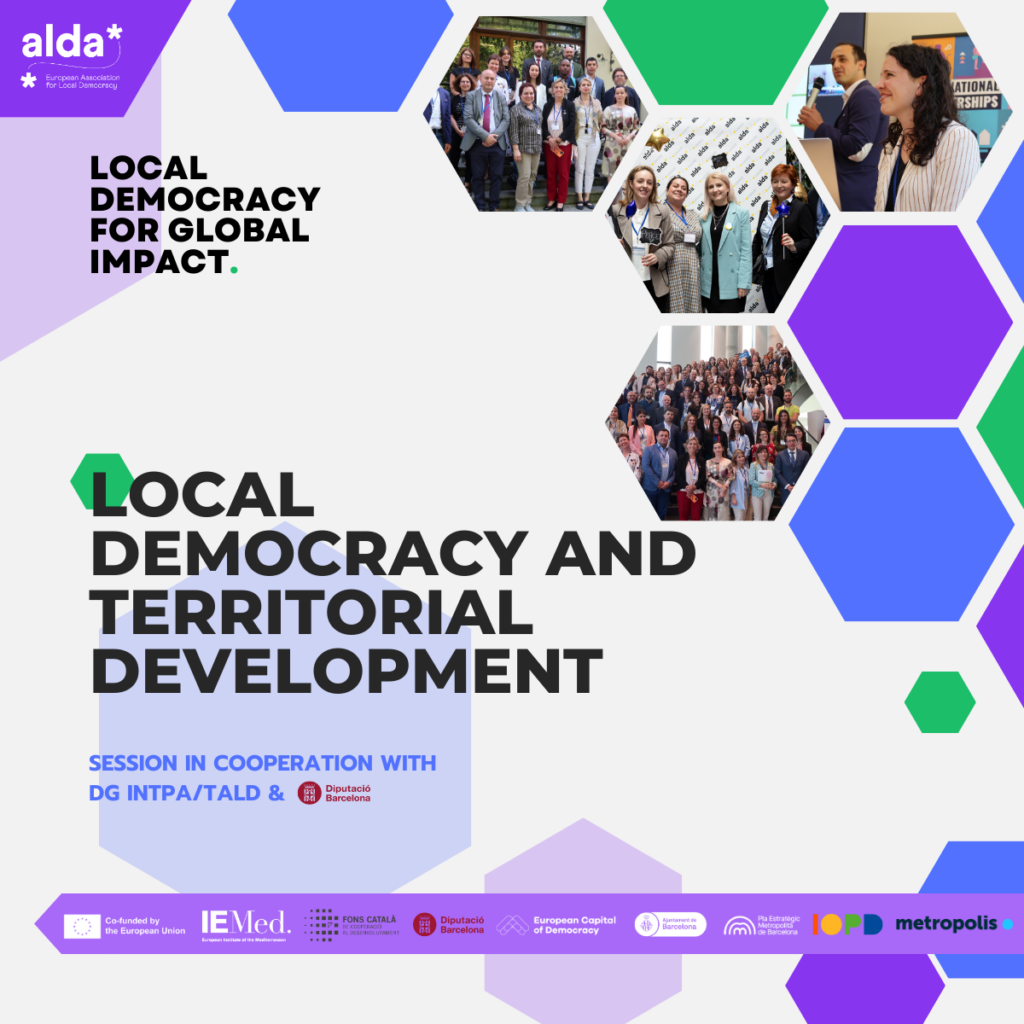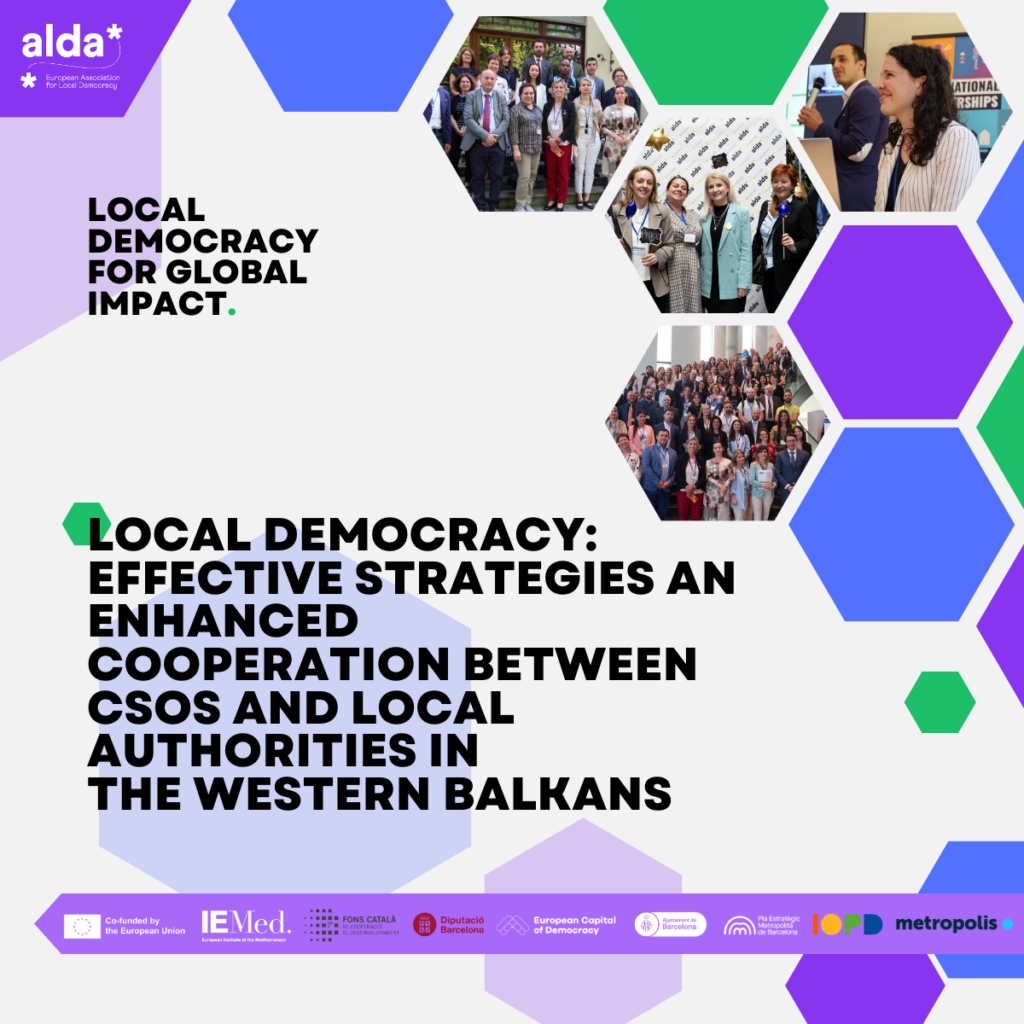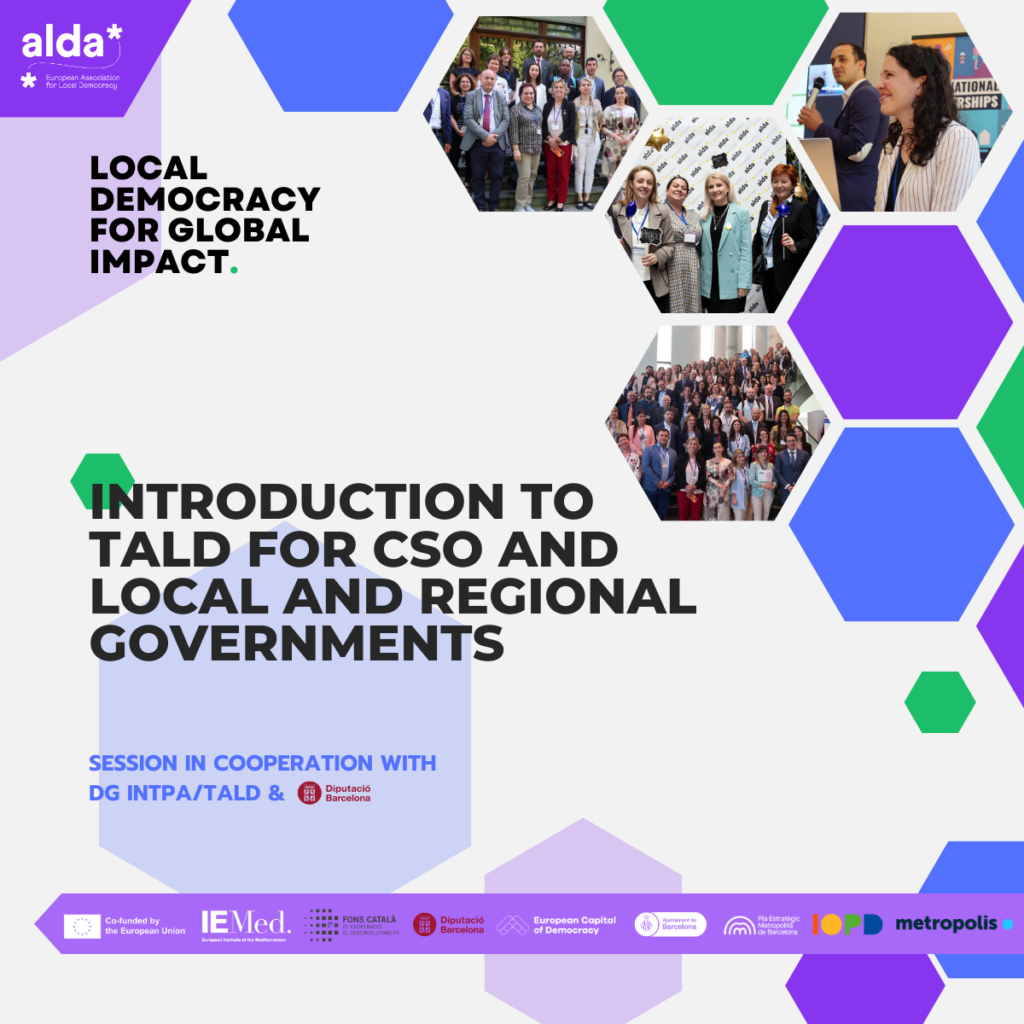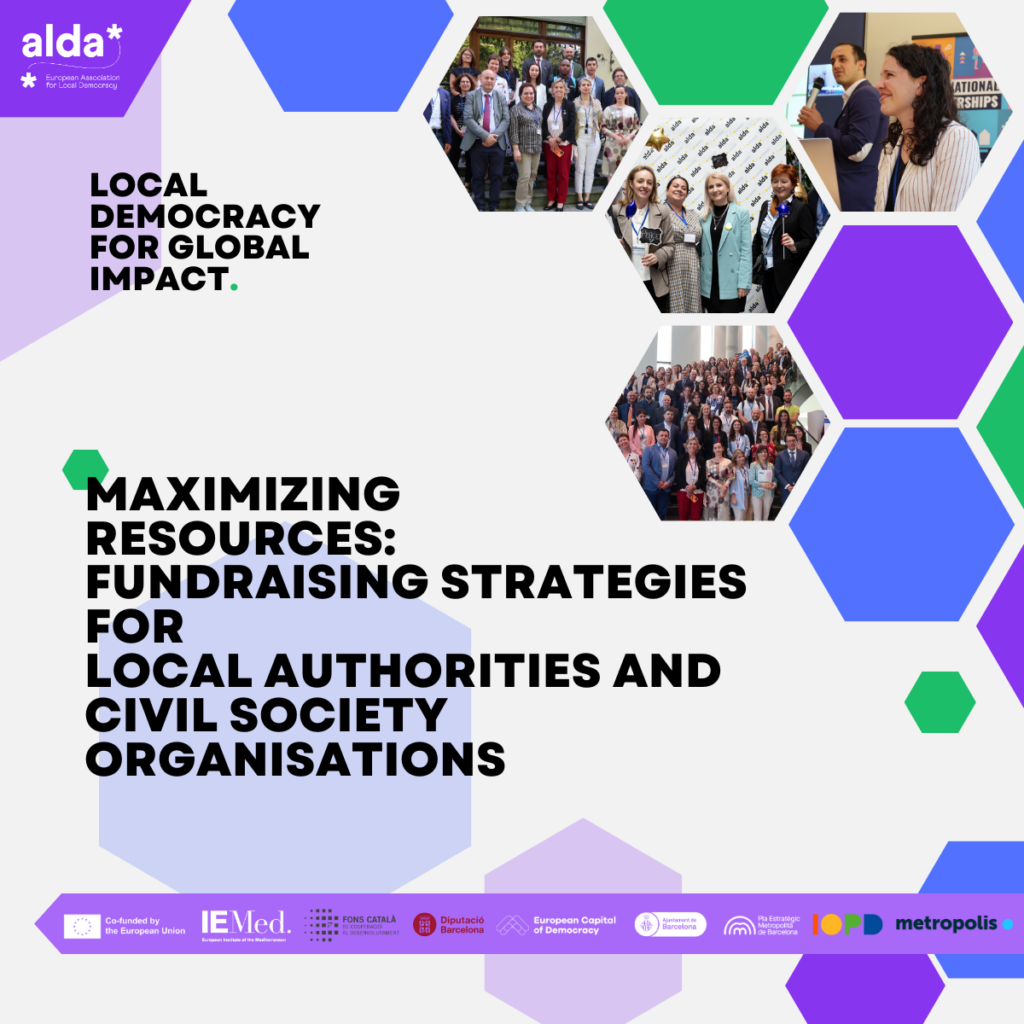On Saturday 11th May 2024 ALDA participated in the event “Vimercate in Europa, l’Europa a Vimercate: PNRR, HEARD e altri progetti da raccontare” held at the Falcone e Borsellino auditorium of the civic library of Vimercate (Italy).
The day, with a European background, focused on three panels discussing politics, PNRR and European projects, including the HEARD project, which aims to deepen the impact of the COVID-19 pandemic on democratic debate, the enjoyment of fundamental rights and women’s work-life balance through the adoption of a gender perspective.
Partners from nine European countries assessed the the effects of the pandemic on the democratic debate and social rights
The project involved partners from nine European countries to assess the effect of the pandemic on rule of law principles, democratic values and the enjoyment of fundamental human rights, with a specific focus on social rights. A targeted needs analysis conducted in each of the nine countries led to the formulation of policy recommendations aimed at mitigating the future effects of COVID-19 pandemic-like situations. These recommendations are the result of the needs expressed by citizens during the pandemic, highlighting discomforts that, although they may seem superficial, have lasting effects on personal and social problems, negatively affecting quality of life.
After these recommendations were identified, they were discussed with political representatives of the municipality of Vimercate, which is also a partner of the project in cooperation with ALDA+. On Saturday, the recommendations were presented to the community of Vimercate and commented on by some politicians from the municipality in a debate. In particular, Mariasole Mascia (Deputy Mayor of Vimercate and Councillor PNRR and European policies), Riccardo Corti (Councillor for personal care) and Daniele Dossi (City Councillor and member of the European BELC network) participated in the first two panels, and Federica Villa (City Councillor) in the third panel.
It was an important opportunity to confront the needs of citizenship regarding rights and freedoms that, in the name of the right to health, have been put on hold for several months. It was interesting to understand the role of the local authorities during the pandemic and the commitment and collaboration they brought to continue working. Several initiatives were presented which the municipality, with the help of the PNRR, is pursuing to improve services and support civil society. The pandemic emphasised the various gaps on various social fronts, such as digitalisation, gender inequality in employment and beyond, and citizen participation. Also thanks to the HEARD project, it was possible to concretely involve civil society in order to deepen and confront the needs of citizens and it will be an inspiration for the future in the implementation of policies to support citizenship.
🇮🇹 Italian Version 🇮🇹
Il giorno sabato 11 maggio 2024 ALDA ha partecipato all’evento “Vimercate in Europa, l’Europa a Vimercate: PNRR, HEARD e altri progetti da raccontare” tenutosi all’auditorium Falcone e Borsellino della biblioteca civica di Vimercate (MB).
La giornata, a sfondo europeo, si è concentrata in 3 panel discutendo di politica, PNRR e progetti Europei, tra cui il progetto HEARD, che vuole approfondire l’impatto della pandemia da COVID-19 sul dibattito democratico, il godimento di diritti fondamentali e il bilanciamento vita-lavoro delle donne attraverso l’adozione di un approccio di genere.
Il progetto ha coinvolto partner provenienti da nove Paesi europei per valutare l’effetto della pandemia sui principi dello stato di diritto, i valori democratici e il godimento dei diritti umani fondamentali, con un focus specifico sui diritti sociali. Attraverso un’analisi dei bisogni condotta in ciascuno dei nove paesi, si è giunti alla formulazione di raccomandazioni politiche, mirate a mitigare gli effetti futuri di situazioni simili alla pandemia da COVID-19. Queste raccomandazioni sono frutto delle esigenze espresse dai cittadini durante la pandemia, evidenziando disagi che, pur potendo sembrare superficiali, hanno effetti duraturi su problemi personali e sociali, incidendo negativamente sulla qualità della vita.
L’obiettivo successivo all’individuazione di tali raccomandazioni, è stato discuterne con i rappresentanti politici del Comune di Vimercate, anch’esso partner del progetto in collaborazione con ALDA+. Nella giornata di sabato, infatti, sono state presentate alla comunità di Vimercate le varie raccomandazioni che sono state commentate da alcuni politici del comune in un dibattito. In particolare, hanno partecipato Mariasole Mascia (Vicesindaco di Vimercate e Assessore PNRR e politiche europee), Riccardo Corti (Assessore alla cura delle persone) e Daniele Dossi (Consigliere comunale e membro della rete Europea BELC) nei primi due panel, e di Federica Villa (Consigliere Comunale) nel terzo panel.
È stata un’occasione importante per mettere a confronto i bisogni della cittadinanza in merito ai diritti e alle libertà che, in favore del diritto alla salute, sono state messe in pausa per diversi mesi. È stato interessante capire il ruolo delle autorità locali durante la pandemia e l’impegno e collaborazione che hanno portato avanti per continuare a lavorare. Sono state presentate diverse iniziative che il comune, grazie anche al PNRR, sta portando avanti per migliorare i servizi e supportare la società civile. La pandemia ha enfatizzato le varie lacune su diversi fronti sociali, come digitalizzazione, disparità di genere nel mondo del lavoro e non solo, partecipazione cittadina. Grazie anche al progetto HEARD, si è potuto coinvolgere concretamente la società civile per approfondire e confrontare i bisogni dei cittadini e sarà uno spunto per il futuro nell’attuazione di politiche di supporto alla cittadinanza.
